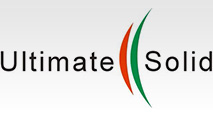President Trump signed an administrative memorandum authorizing the review of China’s intellectual property policy. Trump called this a “significant step” and the Chinese Ministry of Commerce responded that “we will never sit back and will take all appropriate measures”.
Trump shortened his vacation time on the 14th and returned to Washington to sign the above-mentioned memorandum, authorizing trade representative Lettzel to examine China’s trade practices in areas such as technology transfer and intellectual property.
Wright Heather is considered a "hawk" person and his authorization gives him the right to use all available options.
When Trump signed the memorandum, he also claimed that the United States has lost millions of jobs and billions of dollars in losses due to intellectual property theft, and the United States will not sit back and ignore this.
“We will protect copyrights, patents, trademarks, trade secrets and other intellectual property rights. This is very important to our security and prosperity. We will safeguard our values, defend our workers, and protect our innovations and inventions. These are all Support our country's powerful things."
Analysis: U.S. may scrutinize Chinese enterprises or impose additional tariffs in accordance with clause 301
According to an analysis, after a year-long review, the United States may list individual Chinese-invested enterprises on the list and confiscate against certain “Chinese special products” in relation to intellectual property issues in domestic relevant trade laws, or collect certain Chinese products. Additional tariffs.
On the other hand, a spokesman for the Ministry of Commerce of the People's Republic of China responded to the official website yesterday and said that the 301 system "has a strong unilateralism" and has been opposed by other countries. The United States has already promised the international community to implement the WTO rules. The system should strictly observe its commitments and should not become a saboteur of multilateral rules.
The interviewed Chinese scholars analyzed the “Lianhe Zaobao”. From China’s standpoint, China’s prioritized measures may be to arbitrate or file a complaint with the WTO, referring to the US’s unilateral protection of trade and in violation of WTO regulations.
Professor Zhao Xijun, vice president of the School of Finance at Renmin University pointed out that clause 301 is a domestic rule. “If the United States uses Article 301 with China, it uses domestic rules to regulate international trade. This is rare in the international community and it is also a bad head. If every country does this, then the rules of the WTO will not It worked."
Professor Yu Xiaojie, deputy dean of the National Development Research Institute of Peking University, pointed out that WTO’s dispute mediation committees generally have to make a ruling within 18 months after receiving the complaint. The U.S. trade representative may decide whether or not to use China for about one year. Using Article 301, there will be no apparent action between the two countries in the short term.
However, if China cannot resolve disputes under a multilateral framework, the interviewer foresaw that China will adopt countermeasures on bilateral trade and economics, such as the investigation of double-anti-dumping (anti-dumping, countervailing) investigations on US imports of beef, chicken, and other agricultural products. Additional tariffs.
However, given that Wright Heather will have a one-year review before deciding whether or not to initiate a formal investigation and if necessary recommending to the President the implementation of trade sanctions, US officials disclosed to Reuters that a one-year "review" time provides an opportunity. Let both parties solve the problem before the formal investigation begins.
Although Trump often criticized China’s trade policy during his election campaign, he has never taken direct action on China since he took office.
Analysts believe that Trump’s order to review China’s IPR policy is to exert pressure on China and urge China to accept negotiations to adjust trade operations.

